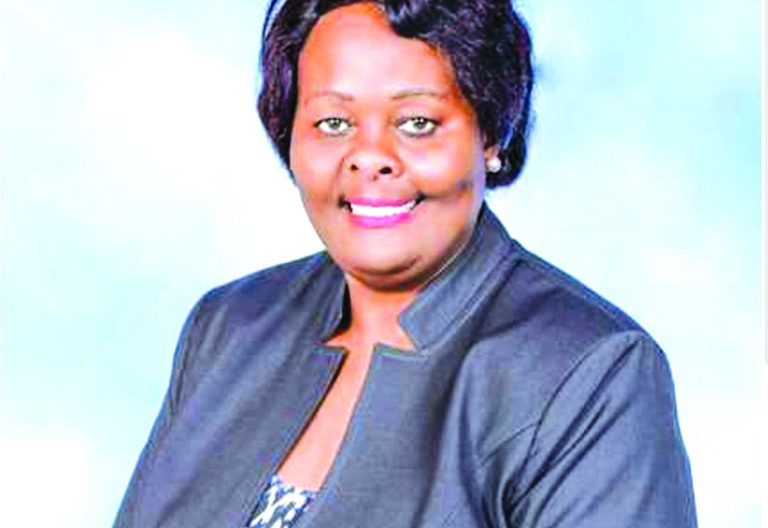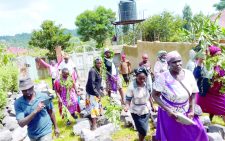Do not travel upcountry, Nairobians told

Anthony Mwangi and Hillary Mageka
Nairobi county is emerging as the epicentre of the coronavirus pandemic in the country, with 37 out of 50 confirmed cases.
Consequently, Health Cabinet Secretary Mutahi Kagwe yesterday appeared to restrict travel into and out of the city as the government works around the clock to tame the spread of the deadly virus.
“The virus is now here with us. To avert the spread, Nairobi residents should avoid travelling upcountry and those in upcountry to avoid coming into the city,” he advised.
Speaking during his daily briefing on the coronavirus, Kagwe said eight more cases had been confirmed in the last 24 hours, bringing the tally to 50 up from 42 on Sunday evening.
The CS said the pandemic is no longer being imported but is spread from within the country, a trend that signals the grave risk of community transmission by locals exposed to the virus, especially in densely populated urban centres and rural areas.
Elderly vulnerable
Given that a majority of the older population, who are the most vulnerable to the coronavirus, reside upcountry, the minister raised alarm that rapid travel by people from the cities to villages could expose the elderly to the respiratory disease.
“Statistics show majority of older people live upcountry and they are likely to get exposed,” he said.
Kagwe said the government was putting in place additional measures, including guidelines on boda boda operators, to stem the spread. He noted that the industry is seen as a weak link in efforts to stop coronavirus spread.
“To protect boda boda operators, we have directed that each rider ferries one passenger at a time and both must wear masks,” he said.
Though ferrying one passenger per trip has been the requirement under the Traffic Act, most boda boda operators have been violating it with reckless abandon.
He said distribution of masks would kick off in all the counties starting next week, and asked the leadership of the boda boda associations to enforce the directive.
Acting Director General of Health Dr. Patrick Amoth said although a majority of Kenya’s population is composed of the youths who are not as vulnerable as the elderly, a heavy burden of communicable diseases and weak health systems remain a challenge in the fight against the virus.
To paint the task ahead, Amoth projected that Kenya would hit 1,000 cases mark by the first week of April, 5,000 by its middle and potentially 10,000 by the end of the same month.
“The fact that we have a youthful population will be an advantage when it comes to the spread of the virus, but we will be disadvantaged by the burden of communicable diseases and weak health systems,” said Amoth.
Responding to queries over the availability of adequate equipment in health facilities to address the pandemic, Kagwe disclosed that Kenya has over 20,000 test kits and that additional 2,000 were set to be delivered yesterday.
He also stated that counties had been asked to set aside 20 secondary boarding schools each to cater for virus patients should the need arise.
“We have asked counties to identify at least 20 secondary boarding schools to cater for the estimated 300,000 patients in the event the numbers spiral out of control,” said the CS.
Tracing of contacts
On testing, Mutahi said results he announced were from the 2,050 people in mandatory quarantine.
The ministry had in the last 24 hours tested 172 samples, 84 of which had been analysed and results received. One person tested positive for coronavirus from the 84.
Nairobi leads with 37 confirmed coronavirus cases followed by Kilifi (6), Mombasa (3) while Kajiado, Kwale and Kitui have registered one each.
The Minister said 88 samples were tested from close contacts of the previous 42 confirmed cases, out of which six were found to have contracted the virus.
One of the confirmed cases is a patient at the Aga Khan Hospital, Nairobi.
Kagwe noted that tracing of contacts of the 50 patients is ongoing and the total number of close contacts of cases now stands at 1,474.
“Out of this, 231 have been discharged after completing mandatory 14-day isolation,” CS Kagwe said, adding that teams are now monitoring 1,211 contacts.
He said 1,005 people had so far been tested for coronavirus.
“This means the virus is now being spread through community transmission and it calls for more personal responsibility,” Kagwe added.
The Minister asked Kenyans to raise their level of awareness and adherence to social distancing guidelines as well as hygiene.
“From the above data it is evident that the virus is being spread through community transmission; which means that the disease is not being imported but being transmitted within ourselves,” he said.
He reiterated his appeal to employers to release their employees by 4pm to enable them make travel arrangements before the 7pm curfew kicks in.
“People have not been stopped from working, be it day or night shifts. Employers should not withhold people’s salaries and wages because of the existing situation,” said Kagwe.
He noted that despite the suspension of international flights, cargo flights are still allowed into the country to cushion the economy from the effects of the pandemic.
“The flights are bringing in medicine and things needed in the country and are not bringing in passengers.
There will, however, be two planes landing to evacuate Germans in Mombasa,” he said.















